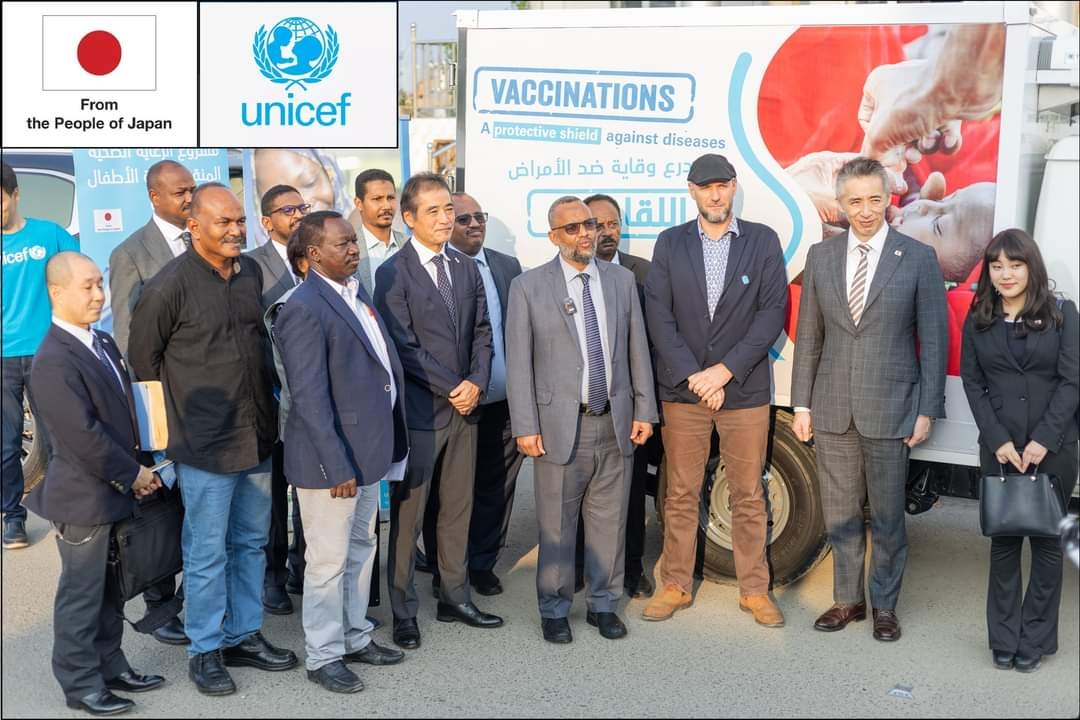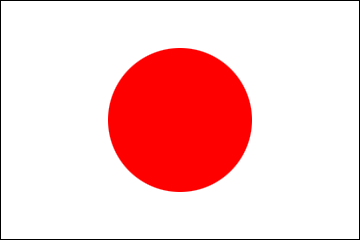Joint Press Release: Japan’s support strengthens Sudan’s cold chain system through UNICEF
Investments in effective cold chain systems ensure vaccines reach every child safely and at the right temperature.

The war in Sudan is threatening to undo gains made for children across various sectors. On the immunization front, the national vaccination coverage has sharply dropped from 85 per cent before the war to approximately 50 per cent. The rates are as critically low as 30 per cent in areas where the fighting continues. Life-threatening yet preventable diseases are on the rise and unvaccinated children, especially those trapped in conflict hot spots more at risk.
Disease outbreaks– polio, measles, and cholera – are on the rise, threatening the lives of many vulnerable children and families displaced and living in congested areas. In these dire circumstances, children must be reached with lifesaving healthcare and immunization.
To support these efforts, on 12 November 2024, the Government of Japan handed over cold chain vehicles to the Ministry of Health as part of its long-term collaboration to enhancing the health and wellbeing of children in Sudan.
“We are now witnessing the spread of diseases, including cholera, in many of the Sudanese states. We are proud to provide timely support, through UNICEF, to the Ministry of Health in its efforts to combat these diseases,” said Ambassador Shimizu, Japan’s Special Envoy to the Horn of Africa, during the handover ceremony.
“Providing and making vaccines and medicine available, through safe, refrigerated transportation to different areas, will be essential in saving lives of vulnerable women and children. Japan is glad to be part of these efforts,” he added.
The support is critical in strengthening Sudan’s cold chain systems for timely delivery of vaccines far and wide across the nation.
Investments in effective cold chain systems ensure vaccines reach every child safely and at the right temperature. They are stored at the right temperature from the time they are manufactured, transported, and delivered for vaccinating for the most vulnerable children even in the most remote places.
Today more than ever, investments in cold chain systems are vital in halting the spread of recurring disease outbreaks, including polio, that continue to threaten the lives of vulnerable children daily.
Even before the war, the generous support of the Government of Japan supported the delivery and implementation of high impact interventions for mothers and newborns.
“This support from the government of Japan to the Sudanese people and the visit of the Special Envoy to the Horn of Africa are highly appreciated. During this ceremony, and through him, we send our thanks to the government of Japan and to the people of Japan, not only for supporting the health sector but all the other sectors,” said Dr Haitham Awadalla, Federal Minister of Health.
At the event, UNICEF reiterated its unwavering commitment to work shoulder to shoulder with the Ministry of Health, Government of Japan, and others to invest in immunization as an integral component of primary health care and helping more children in Sudan grow up healthy.
Speaking at the hand over event, Frank Abeille, UNICEF Deputy Representative for Sudan noted that the delivery of vaccine supplies and routine immunization activities have been greatly hindered by insecurity and lack of access in many places in Sudan. The support from Japan underscores the importance of investments in routine immunization and vaccination campaigns.
“It is critical that we continue reaching children across Sudan with lifesaving vaccines. We must jointly find ways and means to find and vaccinate children who have missed out on some of the vaccines or who have never been vaccinated. We cannot leave any child behind,” he said.
Link to the article on the UNICEF's website:
https://www.unicef.org/sudan/stories/japans-support-strengthens-sudans-cold-chain-system
